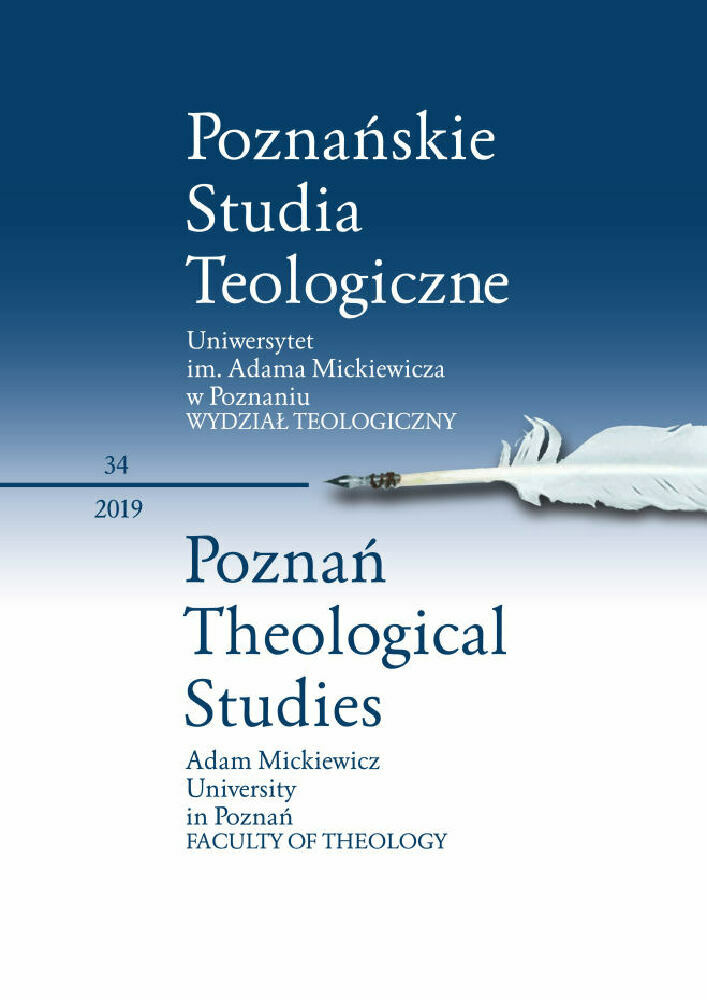Abstract
With Pope Francis a new chapter has begun in the history of the Church. This newness refers to the new internal situation of the Church, new “signs of time”, and new challenges which the Church has to face. Through the symbolic gestures of his pastoral practice and the directions indicated in his homilies and encyclical letters Francis responds to these challenges in the spirit of the Gospel.
His whole pontificate is characterized by the profound desire to impart the newness and fresh- ness of the Gospel as well as what constitutes the core of its teaching. In this endeavor of returning to the sources, he sees the possibility of renewal of the Church. This entails a discernment of what constitutes the center and core of the Christian proclamation versus what is secondary, as well as how Jesus’ teaching has been distorted and deformed over the centuries. Francis speaks about the necessity of the apostolic and pastoral conversion of the Church. The Church has to undertake the “option for mission” and “apostolic dynamism”. She must go to the peripheries.
In his teaching Pope Francis imparts the traditional doctrine of the Church. But he does it in a new way, using new language, new gestures and a new way of life. Like his predecessors, he wants to serve the faith. He does not wish to change what constitutes the core of the Christian faith. But he wants the Church to grow in the understanding of the Gospel as well as in the discernment of the ways of the Spirit. Therefore, he emphasizes the constant need for the attitude of discernment. This is what he has learned above all from Ignatian spirituality and his pastoral experience: “the discernment of the spirits”.
References
Cardedal G.O. de, Los vuelcos en la Iglesia. De Ratzinger a Bergolio, „Veritas” 30 (2014), s. 129–161.
Charentenay P. de, Teologia ludu. Latynoamerykańskie źródło myślenia papieża Franciszka, tłum. P. Napiwodzki, „Znak” 754 (2018), s. 20–27.
Codina V., Kościół wykluczonych. Teologia z perspektywy Nazaretu, tłum. K.M. Kaproń, Kraków 2018.
Corkery J., Francesco, erede e innovatore: un Papa Argentino e gesuita nella tradizio- ne post-conciliare [w:] Dal chiodo alla chiave. La Teologia Fondamentale di Papa Francesco, a cura di M. Tenace, Città del Vaticano 2017, s. 135–150.
Downing A., La storia e l’orizzonte aperto del futuro [w:] Dal chiodo alla chiave. La Teologia Fondamentale di Papa Francesco, a cura di M. Tenace, Città del Vaticano 2017, s. 87–100.
Draguła A., Kościół Franciszka, Kościół Benedykta, „Więź” 2 (2013), s. 15–25.
Franciszek, Adhortacja apostolska Evangelii Gaudium, Watykan 2013. Franciszek, Adhortacja apostolska Gaudete et exsultate, Watykan 2018.
Franciszek, Encyklika Lumen fidei, Watykan 2013.
Gardocki D., Kościół ubogi i dla ubogich jako wyzwanie i zadanie dla Kościoła dzisiaj, „Studia Bobolanum” 3 (2015), s. 5–21.
Gutiérrez G., La spiritualità dell’evento conciliare [w:] Povera per i poveri. La missione della Chiesa, a cura di G.L. Müller, Città del Vaticano 2014, s. 237–274.
Halik T., Pięć lat z Franciszkiem, tłum. K. Ćwiek-Rogalska, „Znak” 754 (2018), s. 6–11.
Jan Paweł II, Encyklika Dives in misericordia, Watykan 1996.
Kasper W., Kościół Katolicki. Istota, rzeczywistość, posłannictwo, tłum. G. Rawski, Kraków 2014.
Kasprzak A.A., Kościół a nowoczesność. Rozeznanie pastoralne przemian społeczno-kulturowych we Francji po Soborze Watykańskim II, Kraków 2018.
Kozłowska D., Zmysł Franciszka, „Znak” 754 (2018), s. 1.
Luciani R., El Papa Francisco y la teología del pueblo, Madrid 2016.
Luciani R., La opción por los pobres desde una Iglesia pobre y para los pobres, „Medellin” 168 (2017), s. 347–373.
Luciani R., La opción teólogico-pastoral del pontificado de Francisco, „Razón y Fe” 1411–1412 (2016), s. 459–471.
Łoziński B., Zrozumieć Franciszka, „Gość Niedzielny” 39 (2018), s. 34–36.
Matwiejuk K., Papieże przełomu drugiego i trzeciego tysiąclecia, Siedlce 2018.
Molina D.I.E., Francisco el papa del fin de la era Constantiniana?, „Custiones Teológicas/Medellín–Colombia” 102 (2017), s. 347–370.
Morra S., Un popolo fedele tra i popoli: elementi di ecclesiologia fondamentale [w:] Dal chiodo alla chiave. La Teologia Fondamentale di Papa Francesco, a cura di M. Tenace, Città del Vaticano 2017, s. 73–86.
Müller G.L., Un’esperienza liberante: impulsi per la teologia Europea [w:] Dalla parte dei poveri. Teologia della liberazione, teologia della chiesa, a cura di G.L. Müller, G. Gutièrrez, trad. M. Castagnaro, G. Mazzillo, Padova 2013, s. 19–44.
Patsch F., Rivelazione, contesto, veritá. Il Magistero di Papa Francesco in tempo di tran- sizione [w:] Dal chiodo alla chiave. La Teologia Fondamentale di Papa Francesco, a cura di M. Tenace, Città del Vaticano 2017, s. 45–72.
Pawlina K., Eklezjologia papieża Franciszka, „Studia Bobolanum” 1 (2014), s. 13–20. Poniewierski J., Subiektywne kalendarium pontyfikatu, „Znak” 754 (2018), s. 28–35.
Reno R.R., Dlaczego mam kłopot z Franciszkiem, wywiad przeprowadzony w rozmowie z M. Burzykiem i M. Jędrzejkiem, „Znak” 754 (2018), s. 12–17.
Seweryniak H., Franciszkowe marzenie o Kościele „w drodze”, „Homo Dei” 2 (2014), s. 58–73.
Sobór Watykański II, Konstytucje, Dekrety, Deklaracje, Poznań 2002.
Steeves N., A papa immaginifico, teologia immaginativa! [w:] Dal chiodo alla chiave. La Teologia Fondamentale di Papa Francesco, a cura di M. Tenace, Città del Vaticano 2017, s. 101–112.
Xavier J., Dinamiche di fede nel pensiero di papa Francesco [w:] Dal chiodo alla chiave. La Teologia Fondamentale di Papa Francesco, a cura di M. Tenace, Città del Vaticano 2017, s. 15–32.
Whelan G., Il metodo teologico di papa Francesco [w:] Dal chiodo alla chiave. La Teologia Fondamentale di Papa Francesco, a cura di M. Tenace, Città del Vaticano 2017, s. 113–133.
License
© 2019 Uniwersytet im. Adama Mickiewicza w Poznaniu, Wydawnictwo Naukowe UAM, Poznań
OPEN ACCESS

